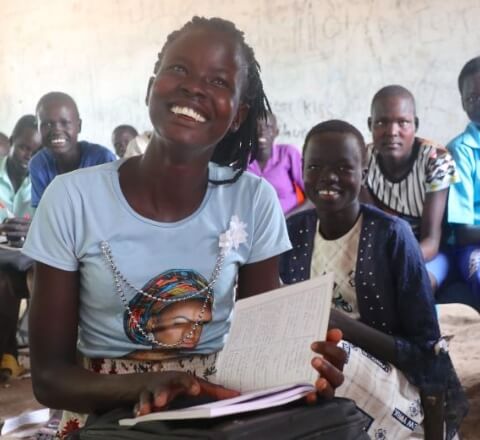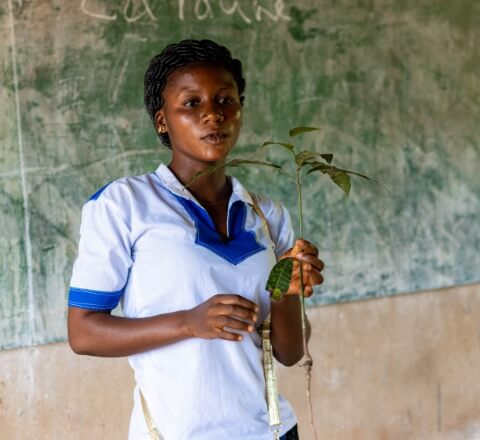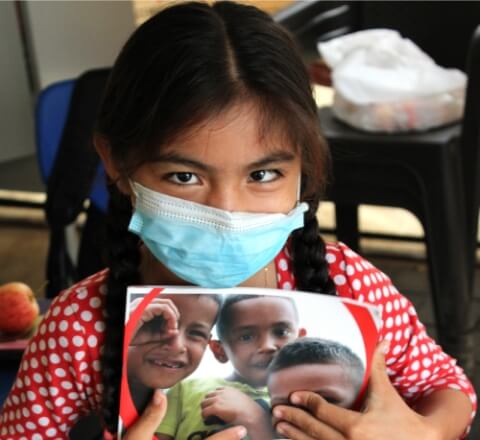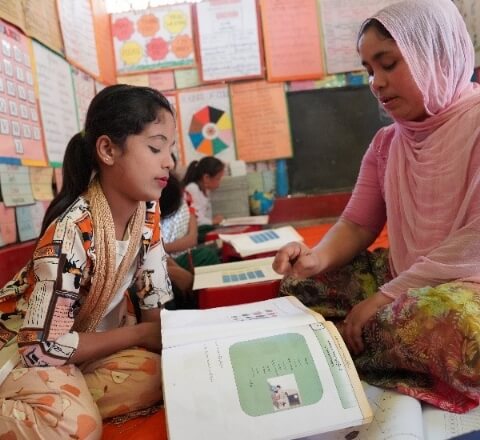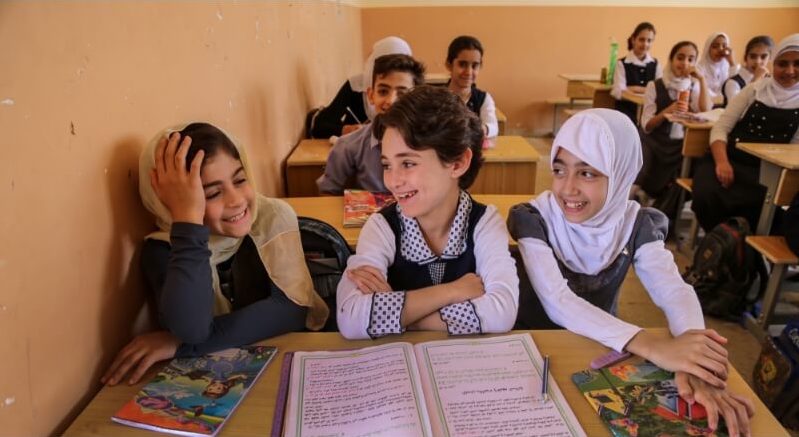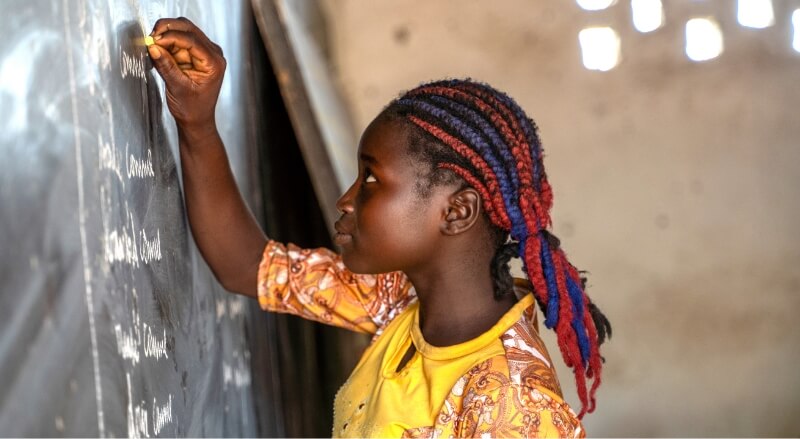In just 6 years, Education Cannot Wait has reached more than 8.8 million crisis-affected girls and boys with inclusive quality education.
Go beyond the numbers and get to know the inspiring stories and faces behind ECW results!
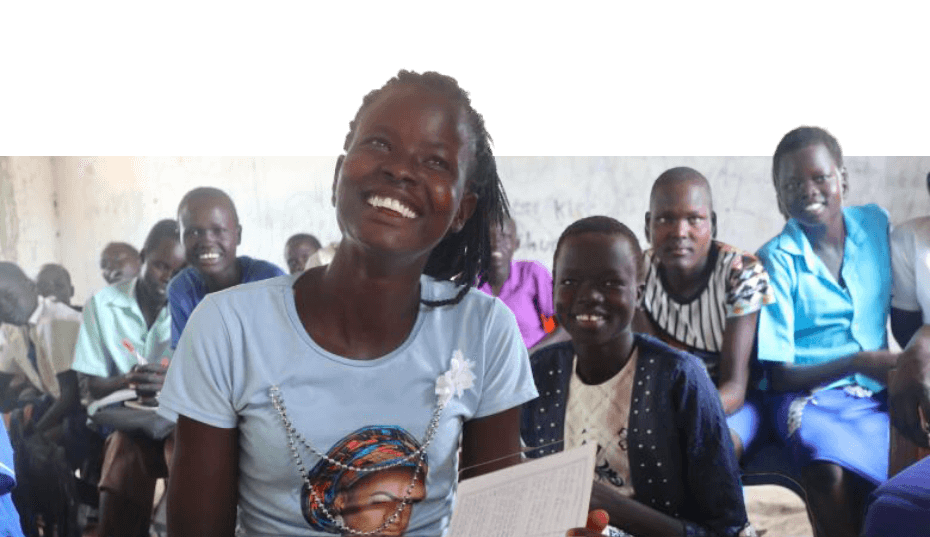
© World Vision
Another Chance for Ajak at School in South Sudan
She had her first child when she was just 15 years old.
In South Sudan, a girl's value is often measured by the number of cattle her family can raise for her dowry. It was only after her second child that 23-year-old Ajak discovered she could still be in school.

I regretted my decision to marry early, and accepted my fate, thinking it was too late for me to go back to school. I grew up believing that girls are born to make their parents proud through marriage.
Such was her determination; Ajak convinced her husband and parents to allow her to go back to school.
She is now continuing her learning in the 6th Grade. Ajak is enrolled in an ECW-funded programme, implemented by World Vision South Sudan for children who face risks such as child marriages that could prevent their continuity of education and return to school. In Warrap State, this programme has a Child Protection Help Desk in eight schools to support children who are at risk of abuse, exploitation and violence. In addition, teachers are trained to provide psychosocial support and counselling to children in the community.
With the scale of the impact of the protracted crisis, a large proportion of adolescent girls who are out of school are at high risk of child marriage. Tailored alternative, accelerated, community-based or mobile solutions are necessary to ensure that they can enrol at the right level, or catch up and re-integrate into formal educational settings as appropriate. In parallel, interventions related to community and parental engagement in education need to be supported to shift deeply entrenched harmful gender norms, such as child marriage and low value of girls' education.
Ajak receives special support from Awac, a teacher at the community primary school. Awac knows only too well that she wouldn't be a teacher today without the support of individuals who motivated her along the way. She is determined to offer the same support to Ajak.

The lean season, July to August, is the time most girls are
forced into marriage as people suffer from hunger. The
programme is effective in saving many girls from child
marriage. There is a need to continue advocating for
children's rights in South Sudan's communities.
—Teacher Awac
With the possibility of an education, Ajak's life has changed drastically. Although she now has three children, she is as hopeful as ever about her future.
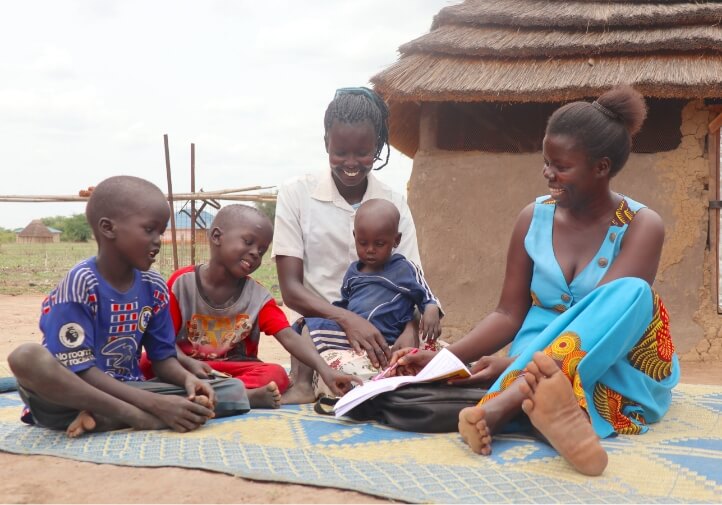

I am determined to complete my secondary level and find a way to proceed to university. I plan to support my children to go to school, too. For the first time, I feel fulfilled doing something for myself.
Contributed by World Vision South Sudan
Read more about ECW'S work in South Sudan →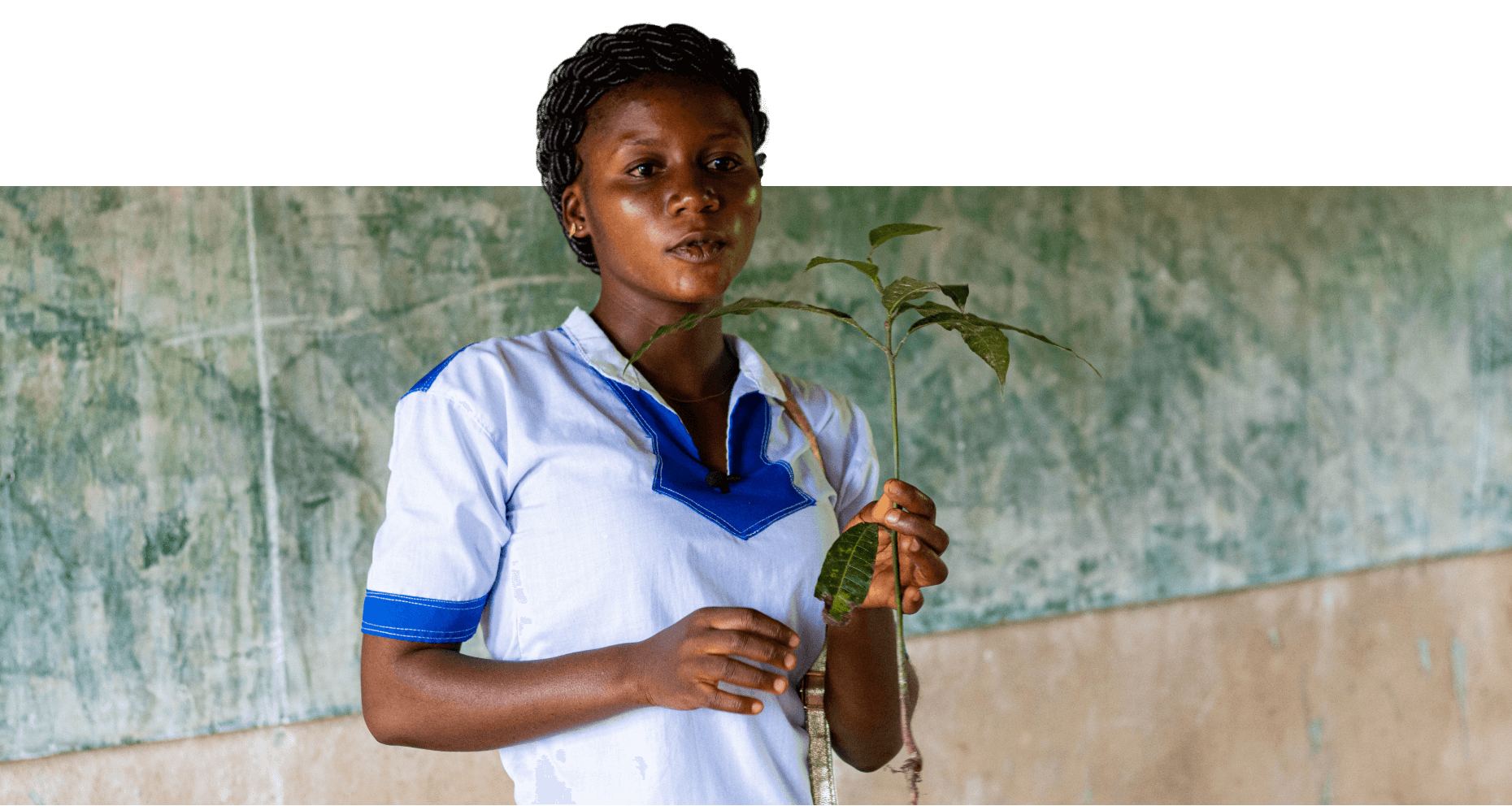
© UNHCR/Vittoria Moretti
Meda Finds Hope in the Democratic Republic of the Congo
With her 2-year-old baby strapped on her back, 21-year-old Meda quickly gets dressed. She does not want to miss a single minute of her afternoon classes. While she is in school, her mother, Mireille, will look after her daughter. Going to school was not always an option for Meda.
In 2017, violence and fighting between armed rival groups in the Central African Republic (CAR) forced Meda and her mother to seek safety in the Democratic Republic of the Congo (DRC). Meda is one of the over 70,000 refugees who made that perilous journey.

Initially, after we came here, I continued to go to school. But soon after, I got pregnant. The father of my child ran away, and I had to deal with the pregnancy alone, so I had to abandon my studies. I was ashamed and afraid that nobody would want to marry me and take care of my child anymore.
In times of crisis, women and girls are disproportionately affected. Gender-sensitive basic facilities are lacking and they struggle to make a decent living, thus increasing their vulnerability.
While Meda's education was disrupted by the conflict and early pregnancy, fortunately, she seized the opportunity to go back to school when a UNHCR partner, Association pour le Developpement Social et la Sauvegarde de l'Environnement (ADSSE), introduced the Zero enfants a la maison (No Children at Home) campaign. This campaign was made possible through funding from ECW and collaboration with UNICEF and other partners. The campaign raised awareness in local and refugee communities on the importance of sending children to school, especially young mothers, and girls with caregiving responsibilities.

I used to see women working with international organizations
coming here to talk to us, and I hoped that my daughter would
become one of them one day and help the community, if she
completes her studies.
——Mireille, Meda's mother
Although she was surrounded by the prejudices of her fellow students, neighbours and community members – Meda soldiered on, she kept on going to her classes. She was motivated by the desire to obtain a diploma and to secure a job to take care of her daughter. Today, Meda has renewed self-confidence and is determined to complete her studies.
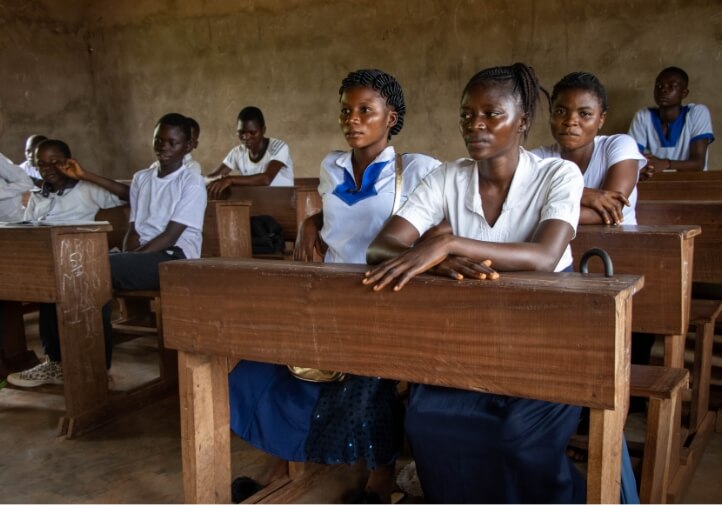

I am passionate about studying the sciences. I would like to become a teacher someday, so that I can share knowledge with children and other girls like me.
Through such targeted initiatives to build a more resilient gender-equal world, thousands of refugee and Congolese girls and boys are returning to school in Northern DRC.

Many girls felt isolated and ashamed to go back to school
after giving birth. So, we explained to them that, even if
they have children, they should still aim for a better future
by completing their education. Today, girls like Meda have
become examples for other young mothers in DRC.
——Adélard Abesolo, Education Officer at ADSSE
Contributed by UNHCR DRC
Read more about ECW'S work in DRC →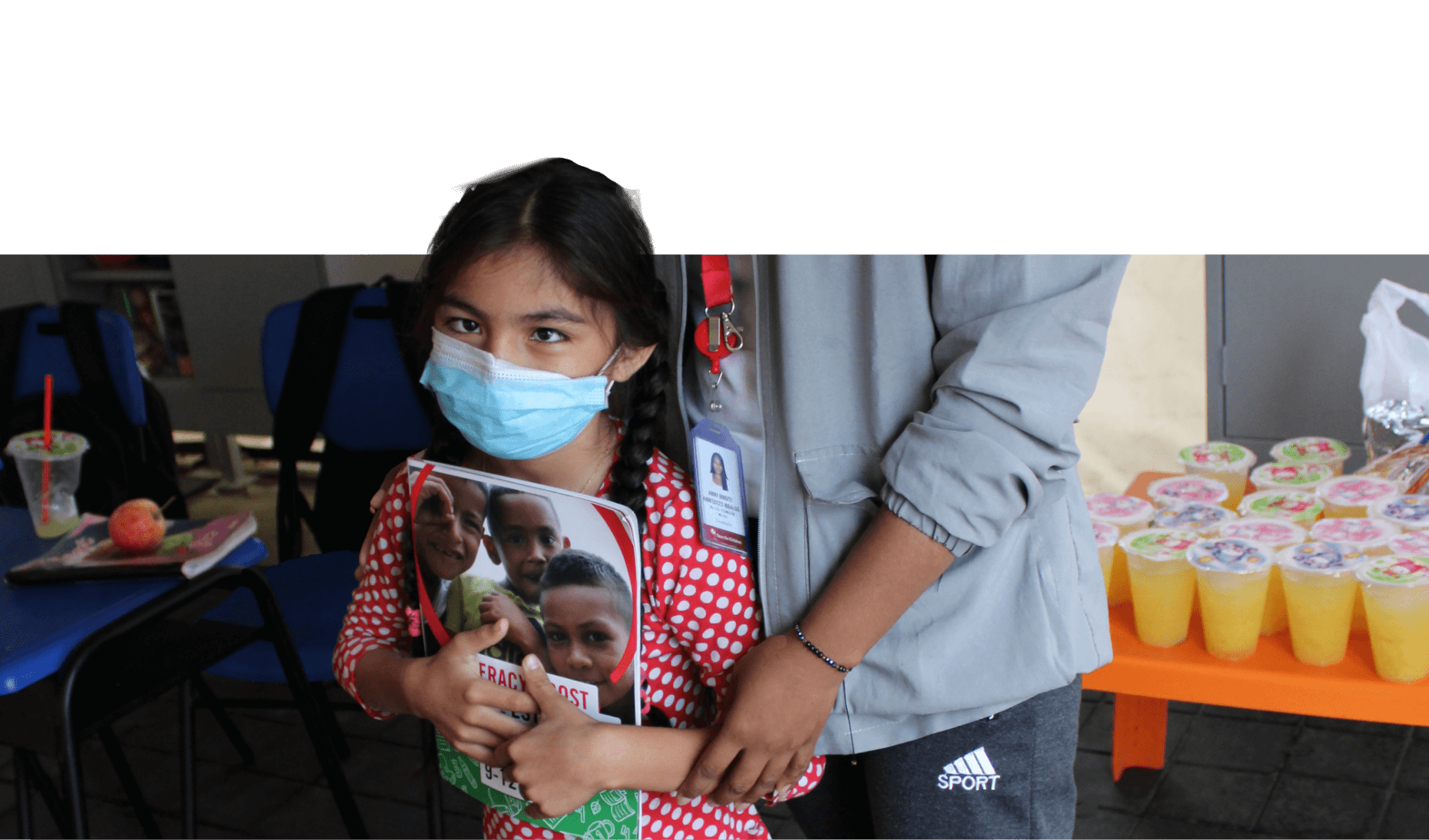
© Save the Children/María Hernández
A New Beginning for Sammy in Colombia
She is always the first to arrive.
Every Monday, Wednesday and Friday morning, 10-year-old Sammy is the first one to arrive at the ECW-funded Child-Friendly Spaces run by Save the Children in La Guajira, Colombia. She lives for the days when she can happily join the other children in this safe environment – learning, playing and singing. But life for Sammy wasn't always like this.
When she was two years old, Sammy's family discovered that she could not walk. During the arduous journey from Venezuela to Colombia, her parents lost the medical documents that indicated that Sammy's psychomotor skills were severely impaired. School administrators advised Sammy's mother that she needed to attend a special education institution that would also focus on meeting her daughter's needs. Without these documents, Sammy would not have access to the quality education that she is entitled to, nor would she ever realize her dreams of becoming a chef or a doctor one day.
Just when all hope was lost, Child-Friendly Spaces offered Sammy a lifeline in her neighbourhood. This inclusive ECW-funded programme provides classes that boost literacy and numeracy, as well as social and emotional skills. Classes are offered to every child in the community. There are no restrictions on access, so Sammy can attend the classes regularly.
ECW adheres to a human rights approach: an approach that strives to guarantee access to education – making it a meaningful learning experience for crisis-affected girls and boys with disabilities around the world.

It has been incredible to see Sammy's significant learning
gains with these classes. She has shown us that when you have
dreams, you can make them a reality. She has every desire to
learn and have a life like any other girl her age would.
—Sammy's mother
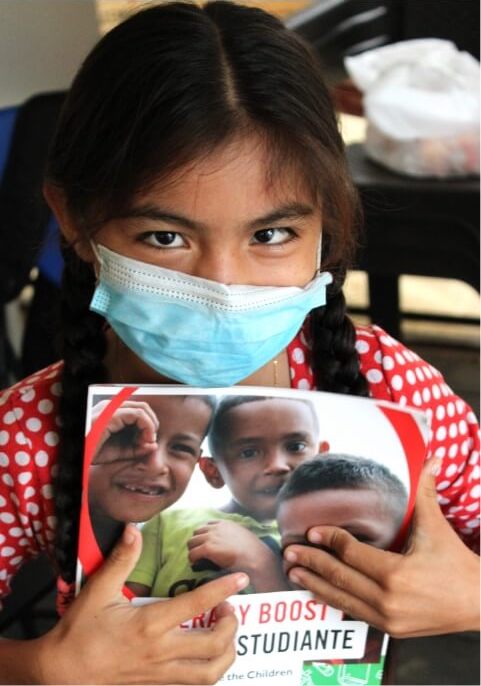
Since its creation, this ECW-funded programme in Colombia, has reached over 57,000 children, including over 22,000 refugees and 468 children with disabilities. In low-income communities, children with disabilities, particularly girls, face greater challenges in accessing a quality education. Sammy is being educated alongside her brother in a disability-friendly environment where supportive teachers accommodate her needs.These classes have shown the positive impact of inclusive facilities that support full participation and protect vulnerable children with disabilities. Sammy now has a better chance of being integrated and of becoming a productive member of her community.
At the end of the day, she warmly waves goodbye to her teachers. Sammy's brother is always there to tenderly carry his sister home on his back. It is one of their favourite moments of the day.
Contributed by Save the Children Colombia
Read more about ECW'S work in Colombia →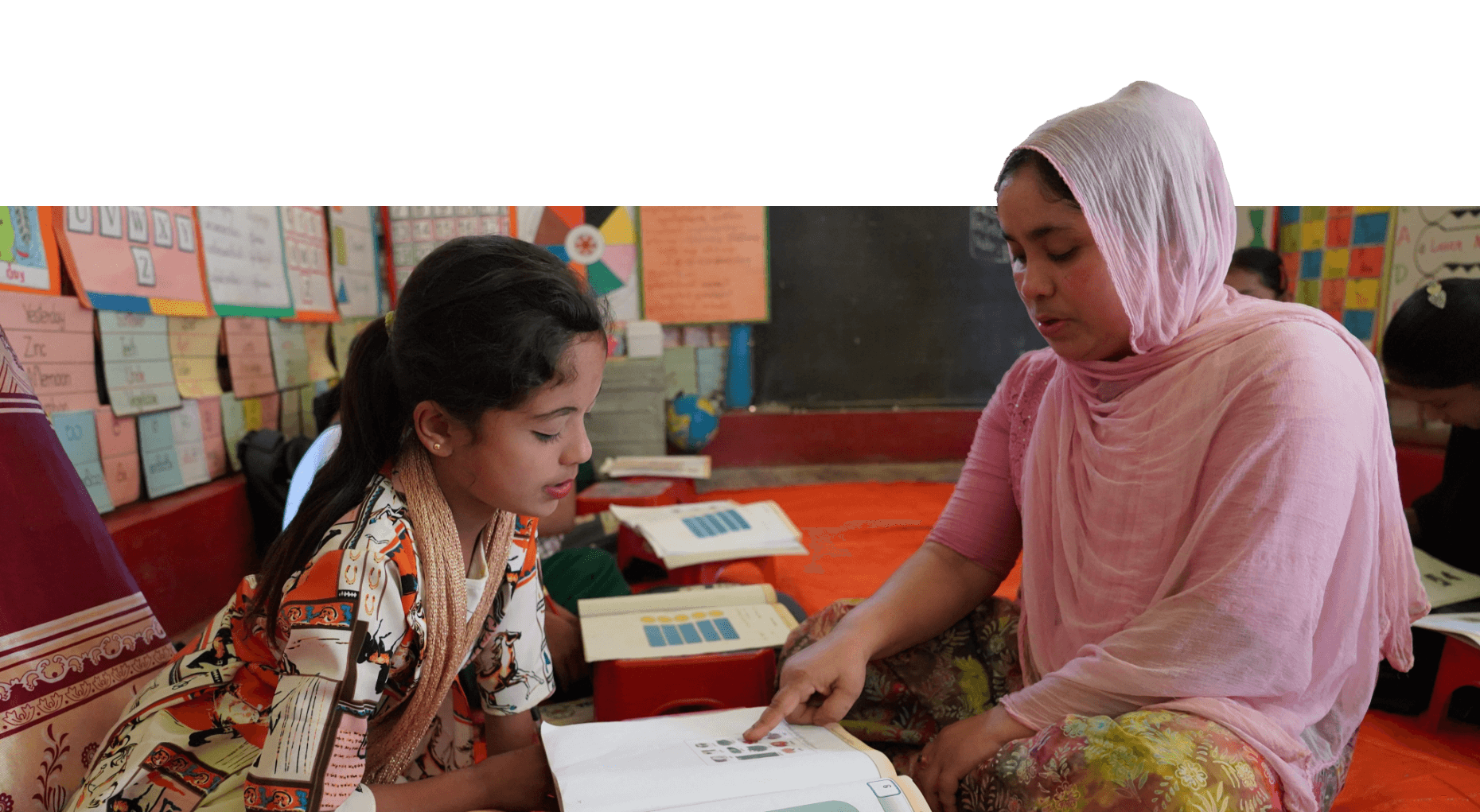
© Save the Children Bangladesh
Jannat Keeps Her Dream Alive in Bangladesh
Thirteen square kilometres of temporary shelters – some made of wood or bamboo, most with tarpaulins – are sprawled out in a maze of muddy hillside pathways. This is Kutupalong, the world’s largest refugee camp. About one million Rohingya refugees live in this settlement in Cox’s Bazar, Bangladesh.
These steep hillsides are also home to half a million refugee children whose dreams extend far beyond the confines of this camp. Fourteen-year-old Jannat* is one of them.

I thought I would never get a chance to go to school again in my life. Since my childhood, I wanted to become a doctor, but after coming here, that desire started dying day-by-day.
Children and youth face insurmountable obstacles to accessing educational opportunities in Cox’s Bazar. Girls, as well as children with disabilities, are among those most affected. In addition to extreme weather events, refugee children are extremely vulnerable to exploitation, gender-based violence, sexual abuse and child marriage.
Initially, Jannat used to go to a learning centre. However, when she became a teenager, she had to drop out due to social and cultural norms that restrict adolescent girls to their homes.
With funding from ECW, Save the Children established a community-based learning facility that also serves as a haven for girls like Jannat. In this secure learning environment, led by female teachers, girls who were at risk of dropping out, or who had never been able to go to school, now have access to a quality education.
Jannat is back in the classroom and a little bit closer to fulfilling the dream that she has had since she was a little girl – to become a doctor. Inspired by a doctor in Myanmar whose work in her community had such a positive impact, Jannat is as determined as ever.

Four months ago, I went to a camp hospital and was treated by a doctor. Her kind voice and attitude clicked my old dream again.
Jannat and her classmates study six main subjects at the centre: Burmese, English, science, mathematics, social studies and life skills. Unsurprisingly, Jannat's favourite subjects are Burmese and science. She knows that if she is to become a good doctor, she will need a firm grasp of science.
Her parents are inspired by her love of learning.
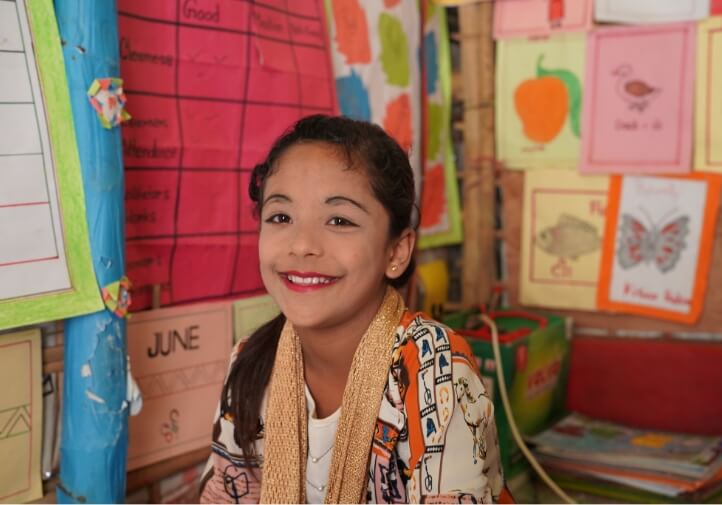

Education is very important for us. We want our children to
continue their studies as far as possible. Jannat is very
attentive and interested in her studies. We will try our
best to fulfill her dream.
—Jannat's mother
But they also know that there is no future for their children at the Kutupalong Refugee Camp. They hope that one day they will return to Myanmar so that Jannat can attend university.
*Names have been changed to protect identifying information
Contributed by Save the Children Bangladesh
Read more about ECW'S work in South Bangladesh →
